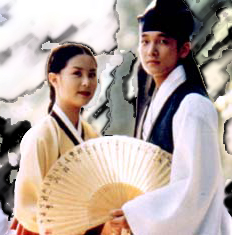
Shapira’s composition “Chunhyang” connects Eastern and Western cultures: Korean singing style, Celtic music, and the Blues. It “focuses on domestic violence and women’s recovery, in response to the work of philosopher Laureen Park,” to whom the composition is dedicated. Quoting from Sound Potential, the “goal is to use this work to raise awareness about violence against women and to help in post-traumatic healing.” We will …partner with women’s rights organizations and provide melodies for women recovering from violence and abuse to use with music therapists and community leaders as a part of their process of healing.” Shapira explained further that the women will be helped to build self respect by singing specific texts with a dedicated sound pattern and certain built-in movements to release pain while forming positive associations.
The name for Shapira’s composition, Chunhyang, derives from one of Korea’s most iconic love stories. Although its author and date of composition are unknown, it most likely originated as a work of Pansori, a form of musical storytelling involving song and percussion. It is also a story about a woman who defied a corrupt leader, survived violence and maintained loyalty to her husband who eventually replaced the corrupt leader. Chungyang became a symbol of love and self respect.
